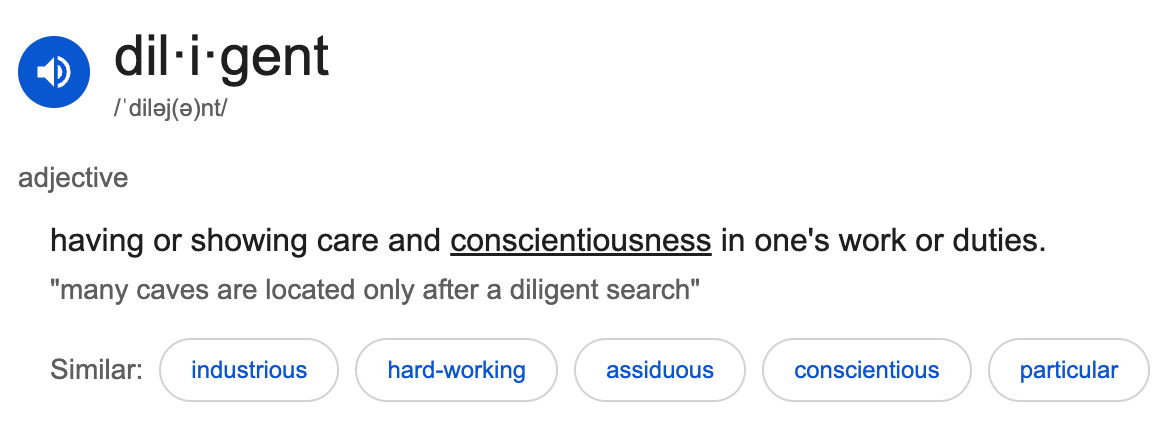Why do we so often tolerate one person (or a few people) at the expense of many?
Big chunks of good—energy, time, money, opportunity, people—lost to allowing the mediocre, unpleasant, and worse. All kinds of possible reasons.
Could be—
Lack of awareness
Leaders don’t know the damage one or a few people are causing.Indifference
It’s not my place or worth my/our attention/time/energy given priorities.History
S/he’s been here for a long time.
Power dynamics
A top-level, mid-level, lower-level boss is the problem.1 Or, the problem person is good buddies with the lower-level, mid-level, top-level boss.
Fear of negative consequences
Conflict, retaliation, social isolation, or loss of status/work isn’t fun. “I don’t want to die on that hill” gets in the way of a lot of good.
Desire for harmony
The harmony of one (or a few) is put before the harmony of the team or the harmony that comes with great results.
Hostage to big talent
Brings in the money, scores the points, knows everyone, but sucks the air out of too many rooms.
Hope in someone’s potential to improve/change
Patience is kind. Inaction is expensive.
Bloated processes
Over-engineered hiring and firing complexities that slow things down in the interest of risk aversion and/or job/role/department protection.Perceived lack of alternatives
“It’s tough to find good people right now, and there’s work to be done.”
Exhaustion
Leadership fatigue, peer fatigue, bigger fish to fry, and fires to put out—blah blah.
It could also be some combination of a selection of each with all kinds of possible nuance.
Solution?
Good leaders who are committed to nurturing an honest (diligent, trusting, transparent) organization focused on its reason for being.
Please give that a few seconds.
Fun note—Raison d'être is the fancy French way to put it—an organization’s reason for being. The Germans go further with Daseinsberechtigung (DAH-zyns-buh-RECHT-ig-ung). Its meaning is not only the reason for someone/thing’s existence but also implies a justification for that existence. Heavy.
It’s fun to imagine all the wonderful possibilities that could come from a solid team of committed leaders.2 But with a few years of experience, most of us know it’s the consistent execution that’s the challenge—not the how, but the doing all the time. There are so many possible failure points along the way.
If you have a product or service everyone needs/wants without concern for the people who make/deliver it,3 it’s easy to see how culture might not be a priority beyond words. You just have to be comfortable with the costs and ugliness of churning and burning people—resigning to an unpleasant culture being the best you can do. A low bar for leaders who enjoy control, cynicism, and laziness.
Everyone plays a part, title or not. But leadership is where the power is.
Quiet truth—The real power lies with money. Few people will tolerate a bad leader or culture for long if they don’t need the cash. Pay them incredibly well, and they might tolerate both for longer, but most will split once they’ve got their freedom fund or another opportunity.
In addition to setting direction and tone, a leader’s work is to build, develop, and retain a strong team of people who get the necessary and meaningful work done. It’s also to nurture the ongoing pursuit of improving that work while identifying and developing future leaders.
If leadership tolerates one or a few people at the expense of everyone else (ultimately including those the organization serves), leadership’s not doing its job.
At this point in my life, I think there are 3 basic types of people at work—Movers, Floaters, and Stones. Movers work to make good things happen. They focus on moving things forward. Floaters do what they have to do to stay afloat. Stones are weight—bad weight. Drag. More here.
I share that with someone, and often the assumption is that I’m talking about individual contributors—that 9-syllable condescending mouthful of corporate speak that some use to refer to people who don’t lead others.4
I’m also talking about leaders of people.
In fact, we do the math on this, given where the power is, if a leader isn’t a Mover, that’s the problem. Floaters and Stones in leadership roles allow unnecessary pain and expense to continue.
Leaders who are Movers develop and reinforce—
Good people who are committed to nurturing an honest (diligent, trusting, transparent) organization focused on its reason for being.
Side note—If you’re a for-profit person, please don’t let me lose you to a concern that I’m saying a beautiful net income or stock price isn’t part of that. They are. They’re by-products of it.
How?
Act as you want your team to act.
Talk with them often.
Help them grow.
Change things when needed.
If you lead people, that’s the work. It’s how you Lead Kindly.
Doing it well is a beautiful thing. Doing any piece poorly creates pain and added expense.
1 unfortunate truth
It’s hard for leaders to be consistent with each of these points. If there were more consistency, employee engagement numbers wouldn’t be as sad as they are. On top of that, we’ve got a never-ending library of real-world organizational dysfunction stories we can always discuss—from the banal to the extreme.
Mix the human challenge with the external challenges (e.g, other people, organizational history, cemented systems and incentive structures, competitive landscape, media influences, the unknown), and you can see how, over time, many people resign to mediocrity and/or a culture based on control, fear, opacity, exclusion, and what’s always been.
That’s when the leaders of leaders need to do their job—the same work with maybe less attention on developing others, depending on the level. And just as people and leaders of people aren’t always Movers, the same is true with leaders of leaders.
So what do we do?
If you’re a member of the team that does the work, be a Mover—someone who happily works to make good things happen.
Focus first on your primary responsibilities. Be attentive, diligent5, honest, and resilient. Throughout, talk with everyone. Listen. Learn. Think. Engage. Be a resource to your manager, teammates, and those you serve. That’s how you Work Kindly.
Important—Notice how similar Working Kindly is to Leading Kindly. Each point below, slightly revised, works for people who don’t formally lead people. Practiced well, each naturally develops future leaders of people.
If you’re a leader of people—
Act as you want your team to act.
Talk with them often.
Help them grow.
Change things when needed.
That’s kindness—the path to a much better day for everyone.
Act
I’ve never talked with a leader of people who openly disagrees with the importance of acting as you want to your team.
Lead by example is a cliché many of us start hearing by the age of 10. Daily, we’re reminded of all the desired behaviors through the good, mediocre, and bad examples displayed by the actions (or inactions) of others—be kind, patient, calm, thoughtful, honest, enthusiastic, appreciative, apologetic, caring, humble, and resilient.
But for an example to be effective, it requires engagement and noticing by others. That can’t be counted on alone. We need to talk with each other.
Talk
Talking with your team isn’t talking to your team. It’s engaging with your team.
It’s asking meaningful questions, listening, and sharing thoughts. (What do you think I/you/we should do?) It’s inclusive. It’s an ongoing, open and honest discussion that can sometimes help the leader as much or more than the teammate. It’s not a transaction once a week or a couple times a month. It’s frequent and consistent.
Talking with people acknowledges their value. Done well, it can encourage the pursuit of meaningful improvement—operationally and for the individual. It helps people grow.
Help
As a leader of people, you have an opportunity to play an important role in the lives of others. You get to help people become better. If you don’t see it as an opportunity, there are all kinds of other work you might enjoy more.
Many leaders also have an obligation to identify and develop future leaders. This ball is dropped too often for all kinds of reasons. A leader of leaders doesn’t reinforce the importance of succession. A leader of people gets tired and becomes a Floater over time. Not enough time in the day. Ego. Cynicism. Fear.
Acting as you want your team to act and talking with them often is a big chunk of how you help people grow. You guide through your words and actions. You show things to people. You expose them to information and processes that invite them to think in advanced ways and practice new and important skills. Bringing in outside influences is important—books, videos, coaches, trainers, and speakers. But, you’re home base.
° I most seriously believe that one does people the best service by giving them some elevating work to do and thus indirectly elevating them.
Albert Einstein | Swiss6 physicist & Nobel Prize winner | 1879 - 1955
With experience, we learn that not everyone wants to grow. Some can’t—true or not. If they’re Good Movers, get things done, and positively influence others, wonderful. If not, a change needs to be made for the good of everyone.
Change
Hire well and stay attentive to your actions, and you won’t have to spend much time and energy here. But unfortunately, you can't just lead by example, engage with your team, and help them grow. You have to be vigilant, too.
The work, team, and culture need to be protected. Leaders need to actively watch and listen for people who are no longer adding value (or worse). If you’re talking with your team often and paying attention with objective eyes and ears, you’ll know what needs to be done sooner. When a person is no longer a match, the kind thing for everyone is to let them go.
It should never be a surprise. Your honest coaching along the way should bring everyone to that critical point easily. If it’s only a performance issue (not a serious ethical or legal issue), most people leaving a team will bounce back and might even thrive better elsewhere. That’s what you hope for. Everyone wins.
Act as you want your team to act.
Talk with them often.
Help them grow.
Change things when needed.
Lead Kindly. It’s a beautiful thing.
Too often, this is the unaddressed problem and the most difficult to overcome.
Could be a useful organizational reminder. “We’re good people committed to nurturing an honest organization focused on its reason for being.” Not something to say, brag, or put on a website—something to show through action.
Amazon might be a good example, along with some healthcare organizations, banks, utilities, insurance companies, and grocery stores.
To me, individual contributor is a euphemism that someone can easily perceive as reinforcing a lack of status on the team. It’s the word individual that does it for me. Even “S/he doesn’t lead people” has 3 fewer syllables.
If, for some reason, someone must openly point out that someone else isn’t a leader of people, why not use contributor by itself? How about teammate, specialist, expert, strategist, producer, or playa?
Playa is supposed to make you smile (pronounced ˈplā•yə). Everyone’s sexier when they smile, Playa.
adj: having or showing care and conscientiousness in one's work or duties
Einstein (born in Germany) wrote to Alfred Kneser in 1918—
“I am by heritage a Jew, by citizenship a Swiss, and by makeup a human being, and only a human being, without any special attachment to any state or national entity whatsoever.”
In 1940, he became an American citizen.



